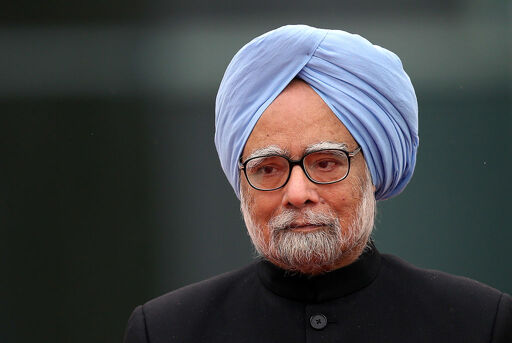In March 2024, the World Inequality Lab published a paper on economic inequality in India, with an eye-grabbing headline: “India’s ‘Billionaire Raj’ Is Now More Unequal Than the British Colonial Raj.” The coauthors of this piece, including noted economist Thomas Piketty, trace the steep rise in inequality to the 1990s, a decade that saw the full embrace of neoliberalism in India, building on a set of International Monetary Fund–approved reforms in 1991.
The figure most associated with the 1991 reforms is Manmohan Singh, who was finance minister for the Indian National Congress (INC)–led government at the time and went on to serve as India’s prime minister for two terms (from 2004 to 2014). Singh passed away on December 26 at the age of ninety-two, and his death has unleashed a flood of praise for his leadership and legacy, even from progressive media outlets. The Wire, a news media site known for its independence and critical analysis, has published no less than ten glowing reflections on Singh’s life and work.
Manmohan Singh’s legacy as a “liberal” is emblematic of the contradictions inherent in the neoliberal project that has swept India since the 1990s. While Singh’s decency as a public figure is often extolled, his economic policies marked a historic capitulation to capital’s global imperatives, institutionalizing inequality under the guise of modernization. What is often overlooked in these tributes is that the term “neoliberalism” itself has been co-opted by capitalist forces to market a deeply conservative, hierarchical agenda as a liberating and progressive movement.
Far from embodying the values of emancipation, equality, and justice traditionally associated with liberalism, neoliberalism in India has entrenched wealth disparities and undermined democratic institutions. As the World Inequality Lab aptly notes, India’s “Billionaire Raj” is more unequal than even the exploitative British colonial regime. The reforms championed by Singh, far from ushering in a golden era of liberalism, laid the groundwork for today’s corporate-dominated, exclusionary politics and the rise of Hindu nationalism—a stark departure from the secular, egalitarian ideals of India’s independence movement.
In this context, the last true liberals in India are not the architects of neoliberalism but the communists of Kerala, who continue to uphold a vision of society rooted in social justice, public welfare, and collective emancipation. Kerala’s commitment to universal education, healthcare, and progressive labor rights starkly contrasts with the neoliberal commodification of these essential services. The state’s communist-led governance offers an alternative that aligns with the original spirit of liberal values, emphasizing equity and human dignity over market supremacy.
Thus, to mourn Singh as India’s “last liberal” is to misread the trajectory of India’s political economy. It is not neoliberal technocrats but those resisting the capital-first order—whether through the Left’s steadfast advocacy for workers’ rights or Kerala’s example of people-centric governance—who carry the torch.



